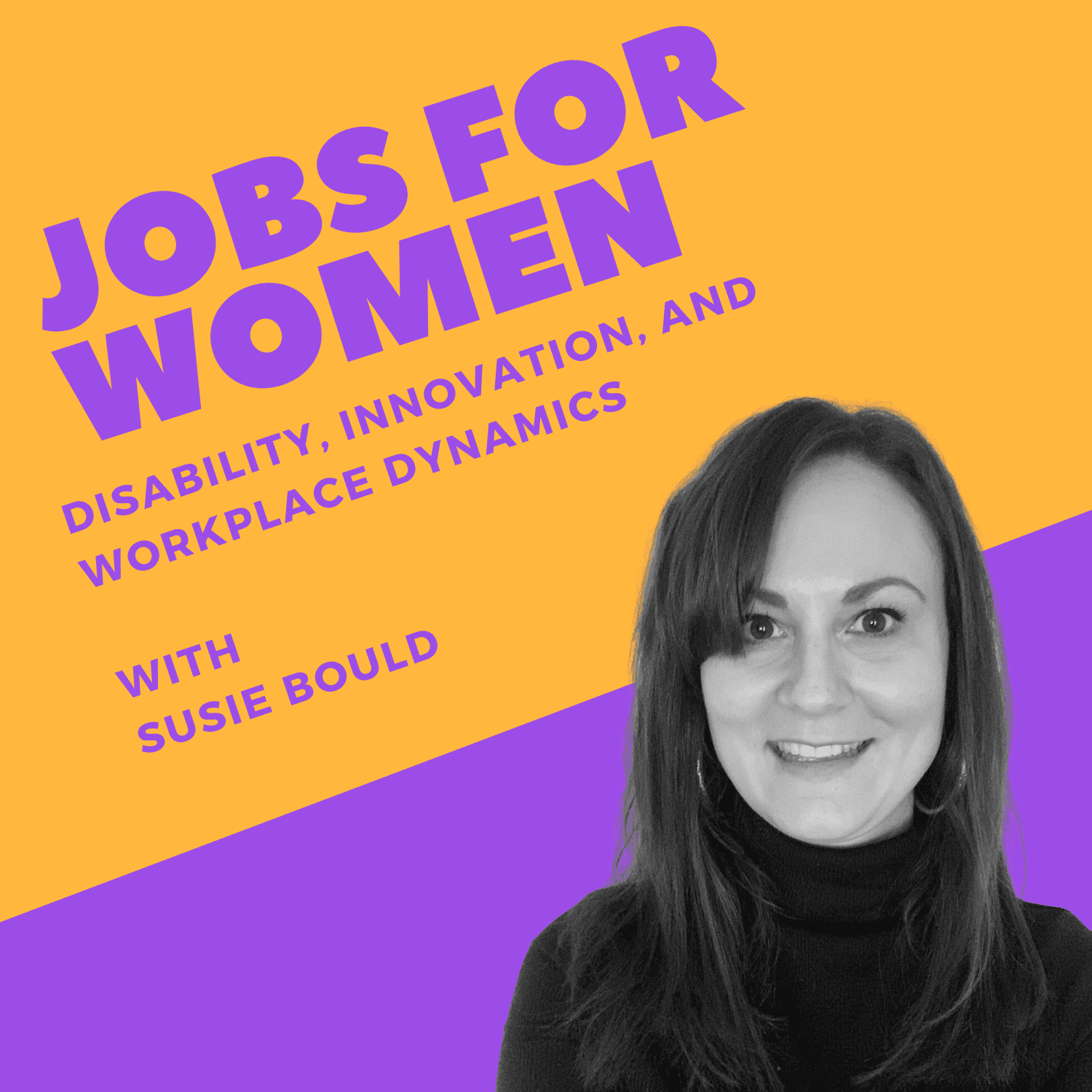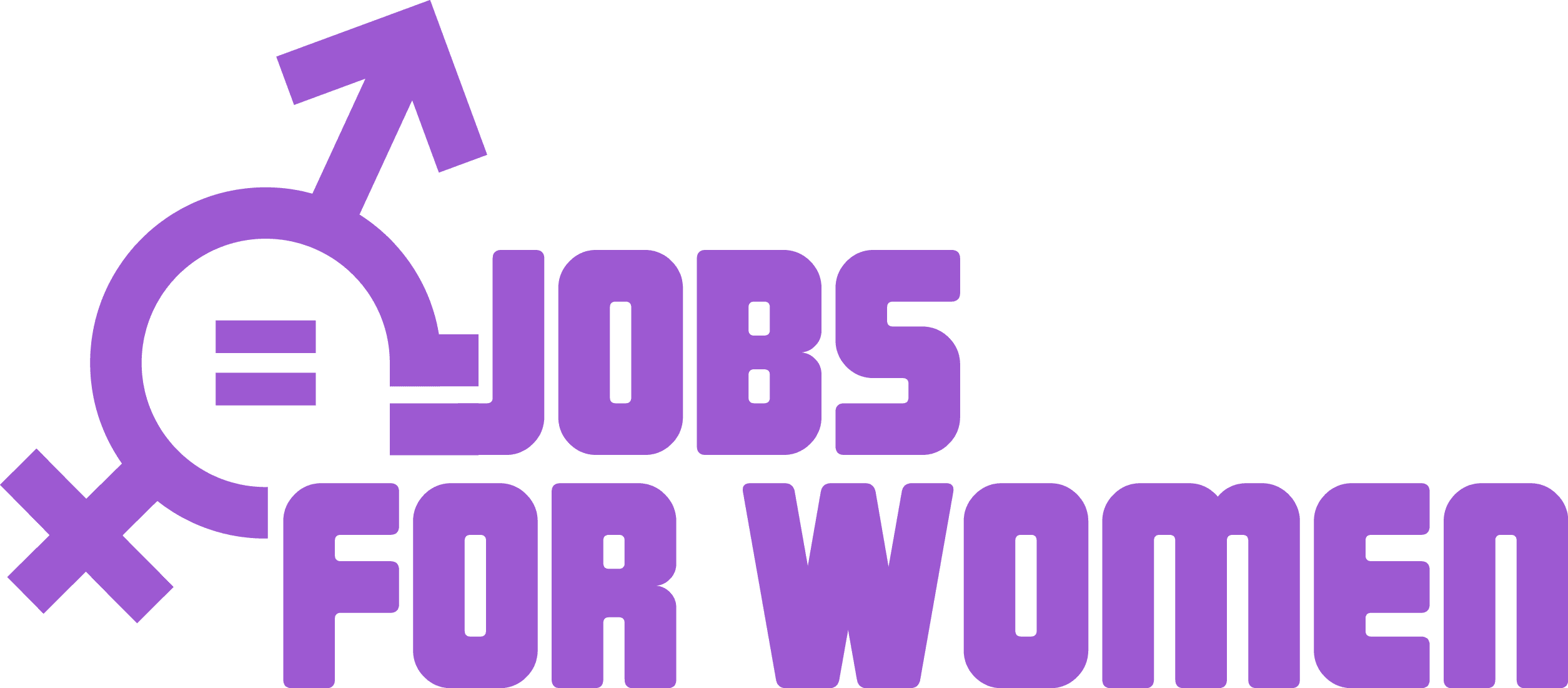
Disability, Innovation, and Workplace Dynamics
In a recent interview on the Jobs for Women podcast, Susie Bould shared her experiences and insights, offering valuable lessons for women navigating their careers. Here are some key takeaways from her conversation with Zoe Haydn Jones.
Embracing Creativity and Overcoming Bias
Susie discussed the challenges she faced in her career, particularly around creativity and bias. She recalled an incident where she was told she wasn’t “creative enough,” a feedback that came unexpectedly after she disclosed her disability. Susie’s response highlights the importance of self-belief and confronting unconscious bias:
“I’m not gonna believe you now… I think the thing about unconscious bias is it’s unconscious. You haven’t acknowledged that and absorbed that yourself.”
The Power of Empathy and Management
As a manager, Susie emphasised the significant influence a leader has on their team’s daily life and overall work experience. She takes this responsibility seriously, aiming to provide opportunities for growth and learning:
“I take that responsibility, really seriously. And I want to find ways to give people opportunities, and see them grow and learn.”
Disability and Workplace Efficiency
Susie also spoke about how her experience as a disabled person has made her more efficient and empathetic in the workplace. She believes that the skills developed through managing her disability are highly transferable to her professional life:
“As a disabled person, It’s built into my DNA now… that’s what we’re all trying to do all the time. How can I drive efficiency in this space?”
The Evolution of Workplace Attitudes
Reflecting on her career journey, Susie noted the positive changes in workplace attitudes towards marginalized communities over the years. She acknowledges the broader social and cultural awareness that has grown, benefiting people who experience different forms of marginalization:
“Bigger movements… have become more socially and culturally aware of marginalized communities over the last 16 years.”
The Future of Work and Leadership
Looking ahead, Susie expressed enthusiasm for her current role and the future. She finds joy in leading a diverse team and contributing to their development:
Susie’s personal experience
“I was about 10 months into this job and I had to go and tell them I needed to have another operation… I remember the managing director saying, ‘Not been here very long. You better make sure you’re indispensable in the next few months. So we don’t get rid of you.’… I think at that point, I was early on in being disabled and all of the societal messaging about how it makes you worth less hadn’t penetrated my psyche. So I had my non-disabled mentality of probably a level of entitlement to respect and I think that is chipped away at when you experience life as a marginalized person.”
On Her Treatment and Workplace Experience:
“They were actually practically accommodating. So obviously the MDs made that comment of ‘you better prove your worth’ but I was off for a month. They paid me in full. They didn’t even talk to me about not paying. They just paid me in full and they let me come back on reduced hours… And that was amazing. And when I then went on to the next job… I randomly had this thing where I woke up one morning and I’d lost sensation and I had to go to hospital… And I remember telling work, and they’re initially so lovely, they don’t worry, they sent me flowers, they were really lovely. And then when I did go back to work… they said, by the way, we don’t actually cover sick pay here so that I had to pay back pay.”
On Her Personal Struggle and Realisations:
“It took me so long into being disabled to learn all that information that at the start, I just felt shame. And I just felt like, I didn’t want people to know and I didn’t want people to judge me and I was worried, I wouldn’t get employed, I was scared to mention it in interviews. It felt like this big elephant in the room to me… I think It did destroy my self-esteem. I felt very worthless for a long time.”
On Her Early Career Challenges:
“I went into hospital in August and… got a job in December. I actually regret that a bit. I wish I’d gone home to my parents, but such an independent very stubborn person that I was like. Now I want to go and live my life… I lived on my friend’s… floor, and then she went traveling and I stayed there for a bit. And then I moved, got a proper place to live but… I was just very stubborn, I think.”
On Her Experience with Disability and Public Perception:
“Being white and, educationally privileged and socially and economically privileged and having grown up in a really privileged upbringing. But then also experiencing what it’s like to have a level of exclusion from… judgments from society… when I was in a wheelchair I got a lot of abuse, people yelling ‘cripple’. People would be savage… It really was so eye-opening because I’d gone through life in this bubble of privilege, essentially, and then it sort of burst. And it was like, okay, I get to see different parts of what it’s like to live in this country if you aren’t insulated by all forms of privilege.”
Susie Bould’s experiences and insights offer a powerful perspective on the evolving workplace, emphasizing the importance of empathy, understanding, and adaptability. Her journey underscores the need for workplaces to be more inclusive and supportive, recognizing the unique strengths and challenges of every individual.
Connect with Susi on LinkedIn
Join the Jobs for Women FREE membership
